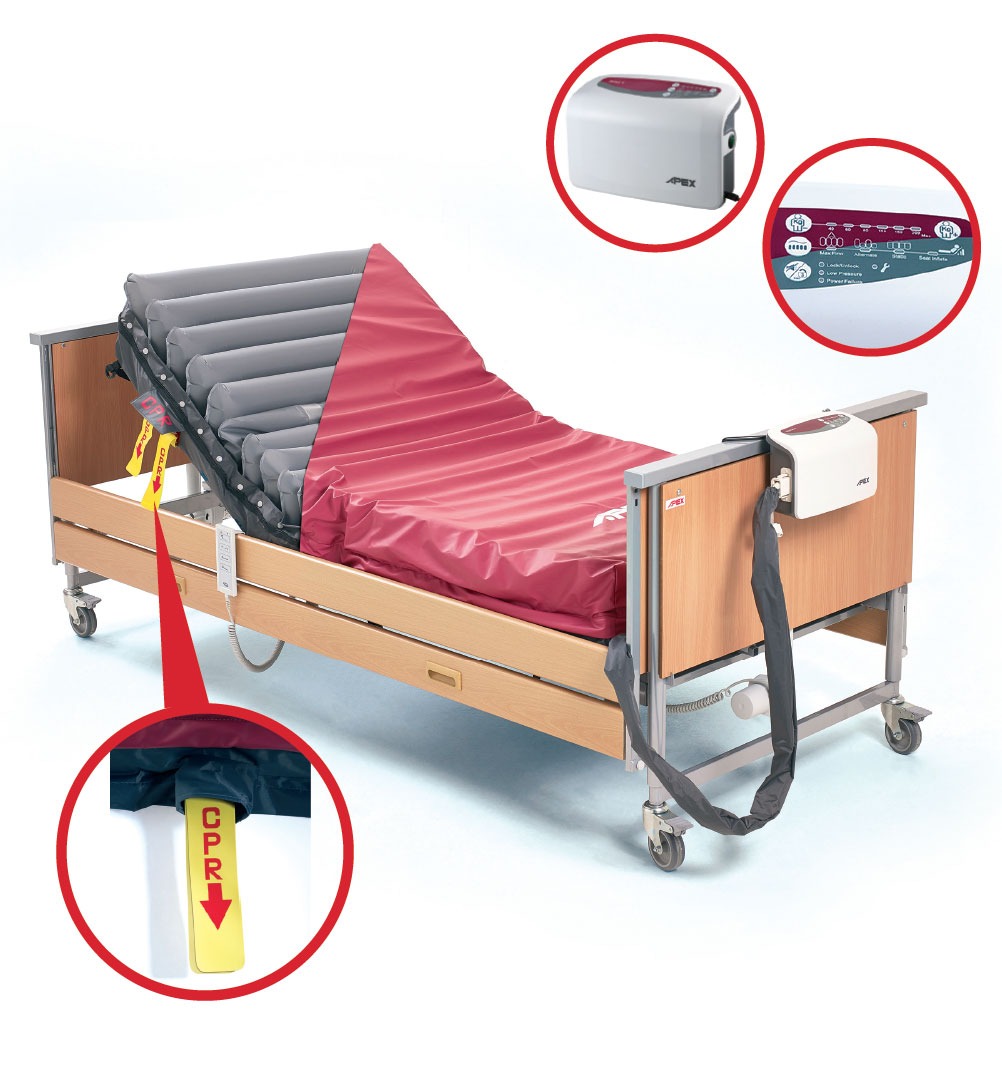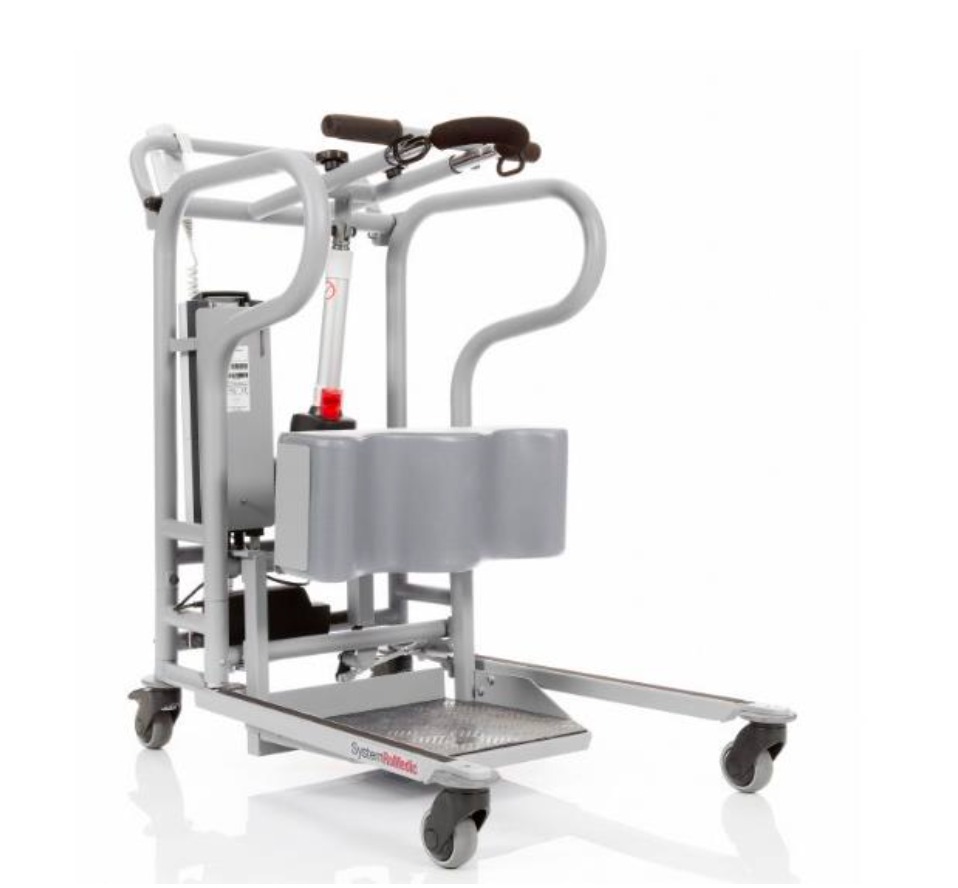As more families in Ireland provide long-term care at home in 2025, understanding how to support bedridden seniors has become more essential than ever. From pressure ulcers to respiratory infections, the risks remain serious — but modern hospital beds and home care equipment can now significantly improve quality of life and long-term health outcomes.
Understanding Bedridden Care Needs
We qualify the word “bedridden” as being too ill to leave the bed. This can happen due to age, injury, or illness. Early onset dementia, MS, and Alzheimer’s are common causes. Whatever the condition, caregiving is a physically and emotionally exhausting pursuit, so self-care is a crucial part of the process. Bedridden patient care covers four key needs:
- Good hygiene: Bathing and dental care will prevent infections, and other issues while improving the patient’s self-esteem.
- Good nutrition: Provide a balanced diet with medical support. Keep track of food intake and note any bad reactions.
- Good quality of life: Keep the patient comfortable and entertained. Audiobooks, family visits, and television are some of the essentials, but nothing beats quality time together.
- Good healthcare: Prevent loss of muscle strength, thrombosis, and ulcers through routine rotations and mobility exercises.
Creating a Comfortable Environment
In 2025, hospital beds for home use are more advanced than ever — offering built-in side rails, remote-controlled adjustments, and enhanced safety features. O’Flynn Medical now provides:
-
Smart adjustable beds with memory positions, ideal for supporting safe postures during rest and care routines;
-
Ultra-low beds that significantly reduce fall injuries while making transfers easier for caregivers;
-
Reinforced bariatric models that support larger individuals with wider frames and higher weight capacities, without sacrificing comfort or mobility.

Nightstands and overbed tables should be easy to reach and fully stocked with personal items. Ergonomic designs will shift weight off the tailbone and alleviate heel pressure. If the patient must lie on their back, hospital beds should achieve a gentle knee bend. High-density foam, memory foam, and air mattresses can prevent ulceration and relieve pressure from contact points like the shoulders and hips. Specialised pillows can accommodate different lying postures, encouraging circulation and lymphatic drainage.
Daily Care and Hygiene
Caring for bedridden seniors requires daily bathing, nail trimming, and dental care. Bedridden patient hygiene may require essential healthcare equipment like bedpans or hand-held urinals. Waterproof mattresses and incontinence pads will maintain bedridden patient’s hygiene. Moisture can cause rashes, so patients need regular checks and washing. O’Flynn Medical hospital beds are a core part of incontinence management, helping you to manage moisture and roll the patient onto their side and remove incontinence pads without spillage.
Mobility and Exercise
Mobility is a key part of bedridden elderly care. It will prevent muscle atrophy, improve circulation, and assist with chronic pain. Prolonged immobility can reduce bone mineral density, thereby extending the rehabilitation period. If you’re caring for bedridden seniors, head rotations, arm lifts, and leg flexes will become a part of your daily routine. If the patient can’t manage them on their own, provide support with healthcare equipment designed for bed-bound patients.

Mobility exercises are tough on caregivers, and bed transfers are no easier. Bedridden care essentials like hoists and transfer boards can carry some of the weight. Maintain your spine’s natural curve and bend with the hips rather than the back. The best way to prevent your own injuries during bedridden patient care is to learn rotation and transfer techniques that minimise weight bearing. The right hospital beds will assist you in that pursuit.
Nutrition and Mealtime
A dietitian or doctor can help you to build a balanced diet. Bedridden elderly care requires high-protein foods that maintain muscle tone. Calcium-rich snacks improve bone density, while unsaturated oils alleviate arthritic pain. Hydration is crucial, so record daily fluid intake.
Feeding assistance is a key part of the patient’s hygiene. Machine-washable bed pads and food tables will make the task easier, as will feeding techniques that improve swallowing. Healthcare equipment will keep the patient upright.
Emotional and Social Well-being
Encourage family visits and arrange video calls on solitary days. Bedridden patient care should keep your loved one stimulated, so bedside games, puzzles, and books are every bit as important as mobility exercises. A busy brain is a happy brain, and that means a better prognosis.
Respite Care and Self-Care for Caregivers
Caregiving heightens stress response and leads to burnout. Your assistance won’t be sustainable unless you prioritise self-care. Looking after your mental health, socialising, and getting regular exercise will reduce the occurrence of compassion fatigue and burnout. There’s no shame in asking for assistance or hiring a professional caregiver to help carry the load if you have the budget.
Respite care might include taking regular breaks, sharing caregiving responsibilities, or enlisting others to handle chores. If you’re experiencing any anticipatory grief, you can talk about it. You can also consider taking therapy and writing about your feelings.
Conclusion
Caring for bedridden seniors well can fend off secondary conditions and improve your loved one’s prognosis. O’Flynn Medical has a reputation for providing some of the best products on the market, making care for bedridden elderly a far easier experience.
Related Articles:
Elderly Fall Prevention – The Best Practices and Guidelines
The Best Bariatric Products for Safer Home Care
